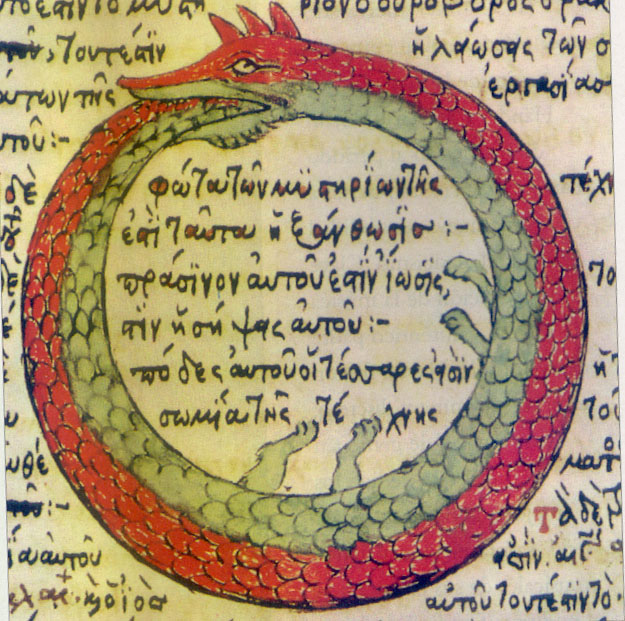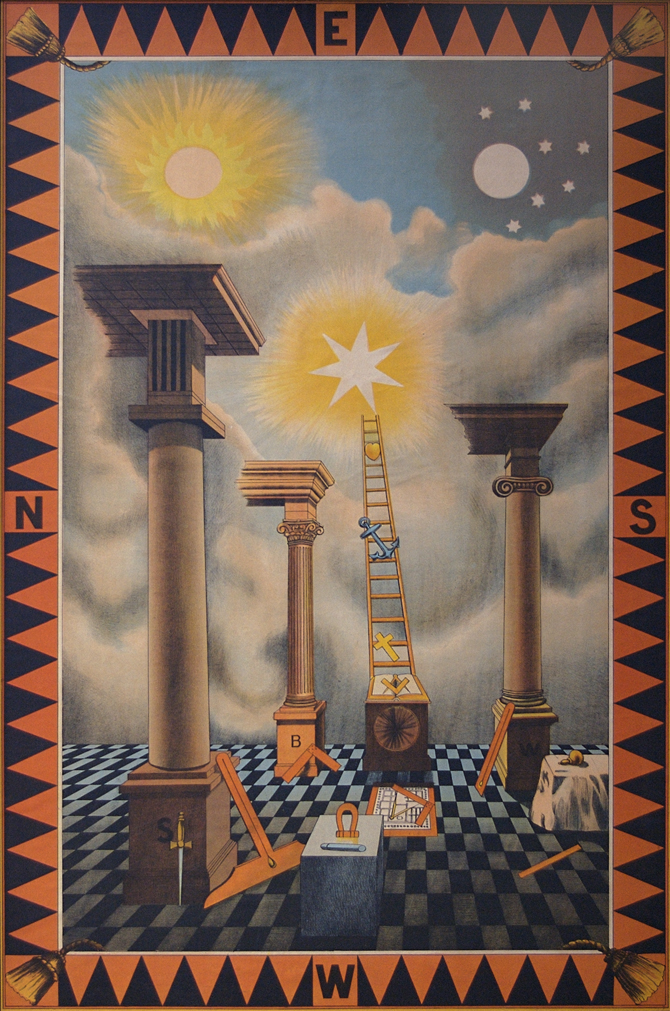I am pleased to be reposting, with permission, a post by /u/TheClandestineMason, who is, despite his name, a regular Mason. This is in response to an article found in the latest issue of the Northern Light, the official publication of the Northern Masonic Jurisdiction of Scottish Rite in the United States. I hope you enjoy it as much as I did.
In Defense of Ritual
by /u/TheClandestineMason
by /u/TheClandestineMason
The purpose of this writing is to defend the act of performing, preserving, and celebrating
Masonic rituals in perpetuity and providing facts to prove the efficacy of ritual on improving men. The Freemasonic system has experienced an amazing amount of transformations since the time of the formation of The United Grand Lodge of England. Membership has waxed and waned during the three hundred years since The Premier Grand Lodge’s founding, creating much celebration and sorrow which have continued to modern times. Masonic rituals should be the ultimate focus of the fraternity and the fertile soil into which we should sow our precepts; social experiences being the fruits of ritualistic labor which are created by every member having a shared experience.
The Masonic experience is one that every brother has. No brother can say he has not knocked at the door and gained admission. None can say they did not see the sign, hear the word, and feel the grip. The entire system of Freemasonry is based on the simple fact that we all have a shared experience. Bonds of brotherhood are built on the three degrees because we share in the degrees.
We are taught that Freemasonry regards no man for his worldly wealth or honor; it is what is found in the heart by which Freemasonry measures a man. The experience of the Master Mason Degree is shared by all Master Masons to the point that the ritual makes it possible for us to use a trowel to cement our brotherly love. All brothers, old or young, rich or poor, regardless of race or nationality, immediately have a bond when we share a token between one another. Freemasonry unites men of all walks of life where they would never share a word otherwise.
The Sovereign Grand Commander of The Northern Masonic Jurisdiction, contributing to “The Northern Light” (the quarterly publication for The Northern Masonic Jurisdiction, Ancient and Accepted Scottish Rite), states “…membership and influence continue to decline, and yet, edicts for better ritual performance and behavior control remain top priorities” (McNaughton).
The argument presented in his contribution relates ritual work to that of Sisyphus, a king damned by Zeus in Greek mythology to repeatedly roll a boulder up a hill. The boulder of course rolled back down causing Sisyphus to perform the act ad infinitum in futility.
Sisyphus in this contribution is likened to Freemasonry in its current state with the argument that demanding more time and better performance of ritual work is like rolling a boulder to the top of a hill and watching it roll down; to demand more ritual work is futile.
Sovereign Grand Commander McNaughton states:
“Low attendance in so many of our lodges, the consolidation of struggling lodges, and the
lack of good men seeking Light in Freemasonry should be wakeup calls to our leaders…Might the solution of membership issues facing the craft necessitate spending more social time together, more time being concerned about the well-being of each other, and less time on ritual? Yes, yes, and yes” (McNaughton).
The solution posited here is that there is too much of a focus on ritual and not enough focus on brotherhood. Ritual is the root of our failing lodges. Low attendance, consolidation of lodges, and the lack of petitioners is being caused by the focus of ritual and the solution to our ills would be to focus on the social aspect of Freemasonry; ritual should take a backseat to social programs.
The questions that come to mind after reading this are numerous. Ritual or the lack thereof, is what creates the spark in the mind which illuminates our thoughts. The light we seek must be found on our own, but the Masonic ritual is what starts the engine of enlightenment within our thoughts. The lack of good men seeking light could only decrease if we spend even less time on ritual. What light will there be if we don’t spend any time on ritual and become a strictly social order?
Spending more time together and caring for each other is literally part of what we obligate to. I will always help a brother as long as it does not cause material injury to myself. We should already be concerned about the well-being of one another; it would be contradictory to assume that spending less time on ritual would increase this aspect. The welfare of the brotherhood is a built-in feature of our fraternity because our ritual not only has its foundation in brotherly love, but we obligate ourselves to each other’s welfare.
Freemasonry in the 21st century already employs “One-Day Classes” that moves brothers from profane to Master Mason in a single day. How can one spend any “less time on ritual” than a One-Day Class? The answer is to record the degree on a DVD and play it in front of brothers, thus “performing” the degree. The Northern Masonic Jurisdiction allows the playing of approved DVD’s in lieu of performing them live as a form of communication. Is the future of The Northern Masonic Jurisdiction or Freemasonry as a whole, the playing of a DVD to make a man a Mason or communicate a degree to him? To what extent can a video recording interact with a human to further the growth of that person? Is this not extraordinarily impersonal?
How can we move further from ritual to strictly social activities when most lodges can barely field a full Fellowcraft Team? Is the failure of having enough men to perform the degrees, or having only a few who can actually perform the work well, caused by an increase of emphasis on good ritual work? Have we already shifted so far into the “social only” aspect of brotherhood that we simply don’t possess the men who can take the time to memorize and perform the work? Such questions cannot be answered here but must be meditated upon by all brothers who seek to further our craft so that future generations may have the same opportunities we have now.
Masonic ritual is the very cement which has the power to join a 75 year old blue-collar retiree with a 25 year old white-collar CPA; the two of whom probably never crossing paths in life except for the bond created by Freemasonry. The three craft degrees (and beyond) provide the stimulation of the mind for light that separates Freemasonry from every social fraternity in the world. Masonic rituals should be the ultimate focus of the fraternity and the fertile soil into which we should sow our precepts; social experiences being the fruits of ritualistic labor which are created by every member having a shared experience.
Bibliography:
Larson, William. "What Do You Do Here?" Northern Light 1 May 2015: 10-13. Print.
McNaughton, John. "Message from the Sovereign Grand Commander." Northern Light 1 May 2015: 3. Print.
Continue reading...

